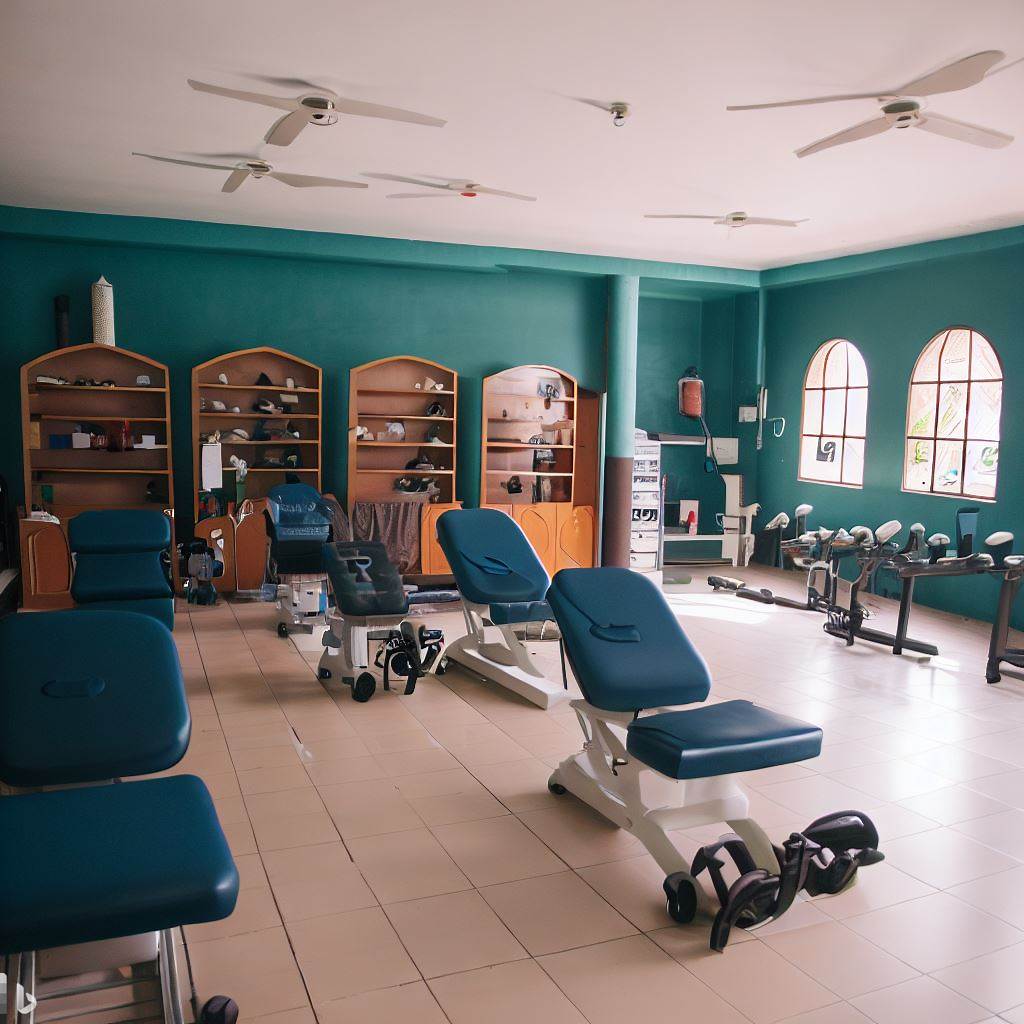Introduction
Political Science Education: Universities in Nigeria
Political science education refers to the study of theory and practice of politics.
It encompasses the understanding of political systems, institutions, and policies.
In Nigeria, political science education plays a crucial role in shaping the future leaders.
It equips students with knowledge about governance, democracy, and decision-making processes.
Basically, political science education fosters critical thinking skills and analytical abilities.
It helps students develop a deep understanding of the political landscape in Nigeria.
Therefore, political science education promotes civic engagement and active participation in politics.
By studying political science, students gain insight into the complexities of Nigerian politics.
They can analyze political events, assess policies, and contribute meaningfully to national development.
In a nutshell, political science education prepares students for careers in public administration, diplomacy, and research.
It empowers graduates to become political analysts, policymakers, and advocates for social change.
The presence of quality political science programs in Nigerian universities is essential.
These programs provide the necessary knowledge and skills to navigate the political arena.
They give students a solid foundation for effective leadership and governance in the country.
In review, political science education in Nigeria is vital for a thriving democracy and sustainable development.
Read: Funding and Support for Curators in Nigeria Explored
Overview of universities offering political science education in Nigeria
In Nigeria, several universities offer political science education programs to students. These programs aim to provide students with a comprehensive understanding of political systems, governance, and public policy.
List of universities offering political science programs
- University of Ibadan: The University of Ibadan is one of the oldest and most prestigious universities in Nigeria.
It offers a political science program that covers various aspects of political theory, comparative politics, international relations, and public administration. - Obafemi Awolowo University: Located in Osun State, Obafemi Awolowo University is renowned for its strong political science department.
The program focuses on political analysis, public policy, and governance in both local and international contexts. - Ahmadu Bello University: Situated in Zaria, Ahmadu Bello University is well-respected for its political science program.
Students learn about Nigerian politics, political economy, international politics, and regional integration. - University of Lagos: The University of Lagos provides a comprehensive political science program that equips students with the knowledge and skills required to analyze political systems and participate in public decision-making processes.
1. University of Ibadan: Description of program, faculty, and facilities
The political science program at the University of Ibadan offers a wide range of courses that cover various sub-fields, including political theory, comparative politics, and international relations.
The faculty consists of experienced professors who are experts in their respective fields. The department is equipped with modern facilities, including a well-stocked library and research laboratories.
2. Obafemi Awolowo University: Description of program, faculty, and facilities
At Obafemi Awolowo University, the political science program focuses on providing students with a deep understanding of political analysis, governance, and public policy formulation.
The faculty comprises highly qualified professors who have extensive research and teaching experience. The university’s facilities include lecture halls, a dedicated political science library, and computer labs.
3. Ahmadu Bello University: Description of program, faculty, and facilities
The political science program at Ahmadu Bello University emphasizes the study of Nigerian politics, international relations, and regional integration.
The faculty members are renowned scholars who have made significant contributions to the field of political science.
The university provides well-equipped classrooms, a resourceful library, and research centers for students’ academic growth.
4. University of Lagos: Description of program, faculty, and facilities
The University of Lagos offers a comprehensive political science program that covers various sub-disciplines, including political theory, public administration, and international relations.
The faculty consists of experienced lecturers with expertise in different areas of political science. The university’s facilities include state-of-the-art lecture halls, a well-stocked library, and research centers for students’ academic and research needs.
In essence, Nigerian universities provide excellent political science education programs to students.
From the University of Ibadan to Obafemi Awolowo University, Ahmadu Bello University, and the University of Lagos, students have access to quality education, experienced faculty, and modern facilities.
Pursuing a political science degree in Nigeria can provide students with a solid foundation for a career in government, diplomacy, research, or academia.
Read: What Makes a Successful Curator? Insights from Nigeria
Comparison of Universities Offering Political Science Education
When it comes to political science education, several universities in Nigeria stand out.
In this blog section, we will compare these universities based on various criteria including the quality of faculty, course curriculum, and research opportunities.
University of Ibadan
The University of Ibadan is known for its strong political science program. The faculty consists of highly qualified professors who are experts in their respective fields.
The course curriculum is comprehensive and covers a wide range of topics. Additionally, the university provides excellent research opportunities for students.
Strengths:
- Highly qualified faculty members
- Comprehensive course curriculum
- Excellent research opportunities
Weaknesses:
- Limited student enrollment
- Limited international collaborations
Obafemi Awolowo University
Obafemi Awolowo University is another prominent institution for political science education in Nigeria. The faculty members are renowned in the field and provide valuable insights to students.
The course curriculum is well-rounded and emphasizes practical skills. Research opportunities are also available, allowing students to engage in meaningful academic work.
Strengths:
- Renowned faculty members
- Well-rounded course curriculum
- Ample research opportunities
Weaknesses:
- Limited resources for research funding
- Less emphasis on current political issues
Ahmadu Bello University
Ahmadu Bello University is known for its strong focus on political science education. The faculty is composed of experienced professors who bring real-world expertise to the classroom.
The course curriculum is dynamic and regularly updated to reflect current political scenarios. The research opportunities provided by the university are extensive.
Strengths:
- Experienced faculty members
- Dynamic course curriculum
- Extensive research opportunities
Weaknesses:
- Large class sizes
- Less emphasis on practical application of knowledge
University of Lagos
The University of Lagos offers a comprehensive political science education program. The faculty members are well-respected and have vast knowledge in their areas of specialization.
The course curriculum is structured to provide students with a deep understanding of political systems.
The university also encourages research and provides the necessary resources for students to pursue their interests.
Strengths:
- Respected faculty members
- Structured course curriculum
- Support for research endeavors
Weaknesses:
- Limited internship opportunities
- Less focus on global political issues
Overall, each university has its strengths and weaknesses in political science education. The University of Ibadan stands out with its highly qualified faculty and excellent research opportunities.
Obafemi Awolowo University offers a well-rounded curriculum with renowned faculty members. Ahmadu Bello University focuses on practical applications and provides extensive research opportunities.
The University of Lagos provides a deep understanding of political systems but lacks in internship opportunities. Choosing the right university depends on individual preferences and career goals.
Read: The Evolution of Curatorial Practices in Nigeria

Challenges in political science education in Nigeria
Political Science Education: Challenges in Nigerian Universities
Political science education in Nigeria faces numerous challenges that hinder the growth and development of the field.
These challenges include the lack of funding for research and academic resources, insufficient faculty and staff, and the use of outdated curriculum and teaching methods.
1. Lack of funding for research and academic resources
- Inadequate funding hampers the ability of political science departments to conduct meaningful research.
- Insufficient funds limit the availability of academic resources such as books, journals, and online databases.
- Without adequate financial support, students and researchers struggle to access necessary materials for their studies.
2. Insufficient faculty and staff
- Many political science departments in Nigerian universities suffer from a shortage of qualified faculty members.
- Limited faculty numbers lead to overburdened workloads, resulting in reduced teaching quality and mentorship opportunities for students.
- Inadequate staff numbers also hinder administrative support, which affects the efficient functioning of the department.
3. Outdated curriculum and teaching methods
- Nigerian universities often struggle to update their political science curriculum in response to changing global dynamics.
- Outdated curriculum fails to address emerging political challenges and stifles critical thinking and analytical skills among students.
- Traditional teaching methods, such as lectures and note-taking, dominate classrooms, disregarding innovative and interactive pedagogies.
Addressing these challenges is crucial to improving the quality of political science education in Nigeria. Here are some possible solutions:
Increased funding for research and academic resources
- The government should allocate a higher percentage of the national budget to education, specifically political science departments.
- Partnerships with international organizations and collaboration with private sectors can help secure additional funding.
- Efforts should be made to secure grants and scholarships to support research activities.
Recruitment and development of qualified faculty and staff:
- Universities should prioritize hiring highly qualified and experienced faculty members to bridge the staff shortage gap.
- Encouragement should be given for faculty development programs, training, and participation in national and international conferences.
- Collaborations with foreign institutions can facilitate knowledge sharing and exchange programs, providing exposure to international best practices.
Updating curriculum and adopting modern teaching methods:
- Regular curriculum reviews should be conducted to align with current political trends and societal needs.
- Implementing interdisciplinary approaches and practical experiences, such as internships and fieldwork, can enhance student engagement and practical skills.
- Utilizing technology and online platforms can facilitate remote learning, virtual classrooms, and open access to academic resources.
In general, political science education in Nigerian universities faces challenges related to funding, faculty shortages, and outdated teaching approaches.
In short, by focusing on increasing funding, recruiting qualified staff, and modernizing the curriculum, these challenges can be overcome.
It is crucial to prioritize political science education to equip future leaders with the knowledge and skills necessary for effective governance and sound decision-making.
Read: How to Get Your First Curator Job in Nigeria
Steps universities can take to improve political science education in Nigeria
To enhance political science education in Nigeria, universities must:
- Allocate more funding for research and academic resources.
- Recruit qualified faculty with political science expertise.
- Regularly update the curriculum to reflect current political trends.
- Employ interactive teaching methods like debates and case studies.
- Integrate technology for engaging learning experiences.
- Encourage student research projects and conference presentations.
- Foster collaborations with domestic and international universities.
- Organize guest lectures by renowned political scientists.
- Create practical internships for students.
- Promote political science clubs for networking.
- Offer financial support for attending relevant events.
- Provide scholarships to retain talent.
- Establish mentoring programs with professionals.
- Improve library resources with journals and books.
- Engage students in local political research.
- Arrange field trips to political institutions.
- Partner with government agencies and NGOs.
- Offer specialized courses in public policy.
- Organize career guidance workshops.
- Collect student feedback for continuous improvement.
- Create political science research centers.
- Facilitate international exchange programs.
- Initiate an alumni mentorship program.
- Encourage interdisciplinary studies with sociology and economics.
Conclusion
Ultimately, political science education plays a crucial role in Nigeria’s development and progress.
It equips future leaders with the knowledge and skills necessary to understand and navigate the complexities of politics and governance.
Recap of the Importance of Political Science Education in Nigeria
Political science education is essential for fostering a democratic system and good governance in Nigeria. It provides students with a deep understanding of political processes, policies, and institutions.
Through political science education, young Nigerians are empowered to actively participate in politics, voice their opinions, and influence decision-making processes.
It enables them to make informed choices as voters and contribute to the development of their communities and the nation.
Summary of Universities Offering Political Science Programs
Several universities in Nigeria offer political science programs, including the University of Ibadan, Obafemi Awolowo University, and Ahmadu Bello University.
These institutions provide quality education in political science, preparing students for careers in politics, public administration, diplomacy, and academia.
Emphasis on the Need for Improvements and Support in Political Science Education in Nigeria
While political science education in Nigeria has made significant strides, there is still a need for improvements and support.
This includes enhancing curriculum relevance, promoting research and innovation, and fostering collaboration between universities and government agencies.
Furthermore, increased investment in infrastructure and resources is crucial to ensure quality education in political science.
Scholarships and grants should be made available to deserving students, allowing them to pursue their studies without financial barriers.
By prioritizing and strengthening political science education, Nigeria can nurture a new generation of informed and capable leaders who are committed to the country’s democratic values and development.




